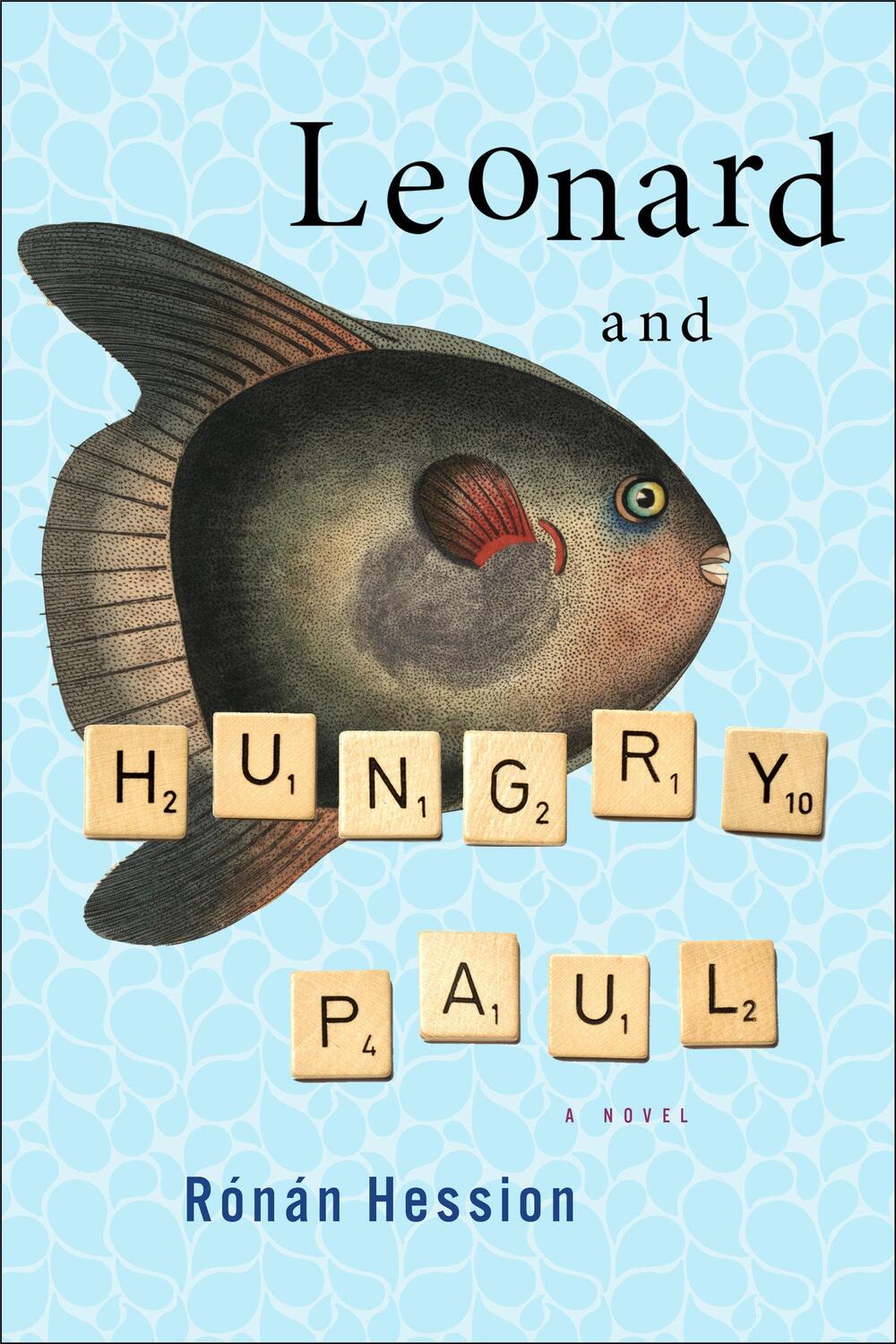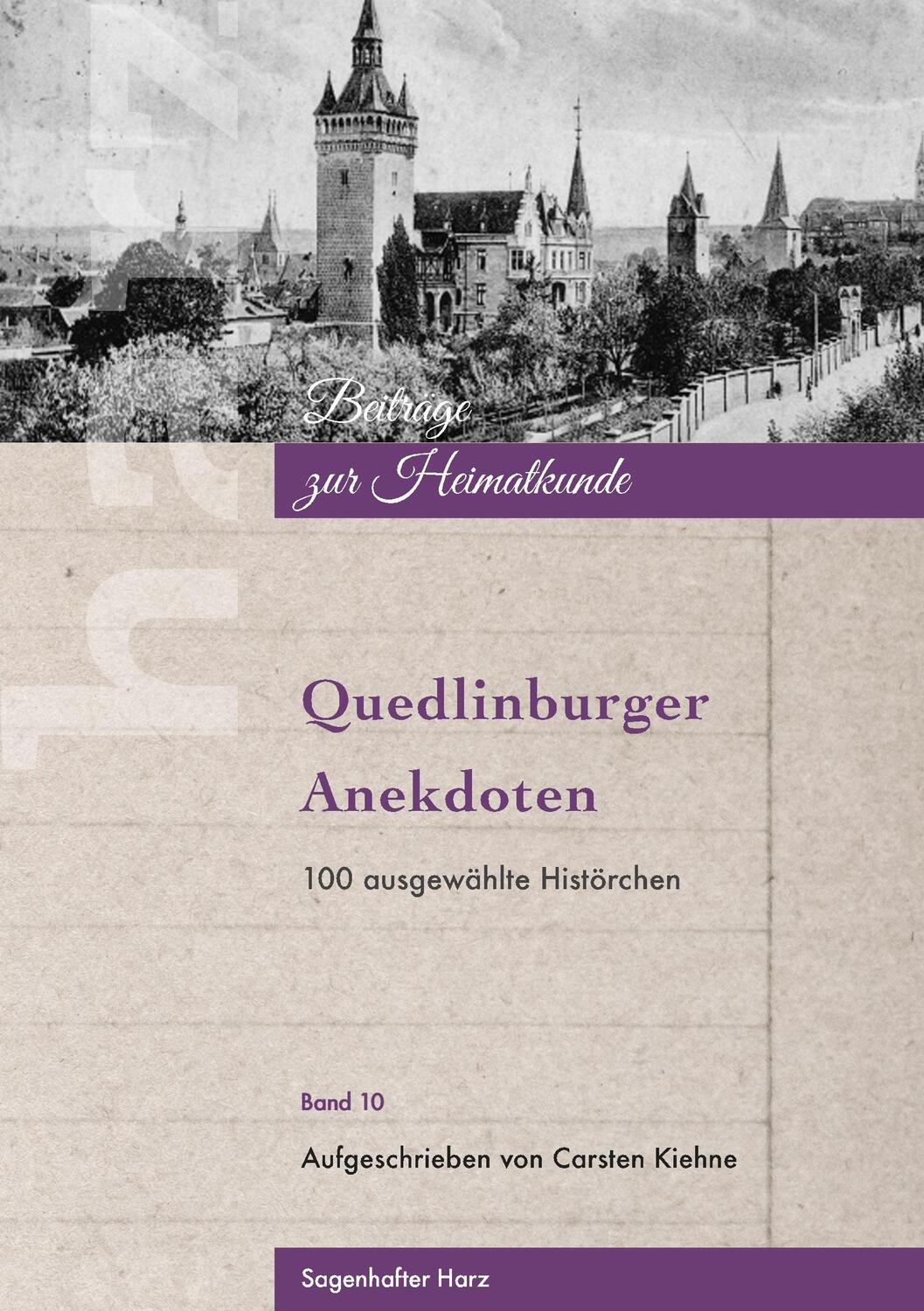Dekorationsartikel gehören nicht zum Leistungsumfang.
Sprache:
Englisch
34,30 €*
Versandkostenfrei per Post / DHL
Lieferzeit 1-2 Wochen
Kategorien:
Beschreibung
CHAPTER ONE
Leonard was raised by his mother alone with cheerfully concealed difficulty, his father having died tragically during childbirth. Though she was not by nature the soldiering type, she taught him to look at life as a daisy chain of small events, each of which could be made manageable in its own way. She was a person for whom kindness was a very ordinary thing, who believed that the only acceptable excuse for not having a bird feeder in the back garden was that you had one in the front garden.
As sometimes happens with boys who prefer games to sports, Leonard had few friends but lots of ideas. His mother understood with intuitive good sense that children like Leonard just need someone to listen to them. They would set off to the shops discussing conger eels and have a deep conversation about Saturn’s moons on the way back; they would talk about tidal waves at bath time, and say goodnight with a quick chat about the man with the longest fingernails in the Guinness Book of World Records. But Leonard grew up at a time when quiet, imaginative children did not yet enjoy the presumption of innocence. His mother often found herself having to take his side against ornery teachers who complained that they found it impossible to get through to him. With patient maternal endurance she would sit by herself at parent-teacher meetings explaining that, like his late father, he ‘just lacked a Eureka face.’
Even into his thirties, Leonard’s mother still liked to fuss over him, buying his favourite ham for lunch—the one with fewer veins running through it—leaving tea by the bedside for when he woke up, and ironing well-meaning creases into his jeans, which Leonard would quietly iron out later. He repaid her thoughtfulness by keeping her company through her later years and generally including her in the uncrowded bandwidth of his life.
Leonard was not exactly sure, but there must have come a point when their relationship grew from a purely filial one into one of partnership. Though an adult son living with his widowed mother is a situation about which society has yet to adopt a formal position, it is clearly seen in second-best terms. Insofar as anyone noticed, they might have assumed that she was overbearing or that he lacked initiative and possibly a sex drive. In reality, neither sought to limit or interfere with the other, both being independent people who liked their own space and who, quite simply, got along. Leonard did recall some awkwardness around the suggestion that they go on holidays together, though he was not entirely certain which of them had first proposed it. Mother/daughter holidays are normal of course, and father/son trips are famously storied as a way to come of age. Mother/son holidays, though, have the connotation that one of them must be a burden on the other. But truth be told, they were well suited as travelling companions. She was a keen walker and had good gallery feet, being able to wander around any reasonable exhibition in its entirety without being distracted by the gift shop honeypot that drew in tired women half her age. They both liked churches and even though Leonard was not religious himself, much of the world’s art is. He would enjoy visiting famous paintings and sculptures in European cathedrals, while his mother would busy herself lighting a candle in the side chapel for her fragile, long-departed husband.
She had never really asked Leonard about girls, knowing the delicacy of the subject for him, and also because of her own doubts about whether his apparently celibate life was due to a lack of interest or opportunity. For Leonard, the fact that he still lived at home with his mother led to a certain self-restraint on practical grounds. He had wondered what would have happened had he brought a girl home only for them to wake up to two cups of tea at the bedside the next morning.
His mother passed away unexpectedly one midweek night in her sleep, tucked into a duvet with her clothes all laid out for the next day, her neatness being a sign of her respect for the small things in her life. The doctor noted the cause of death as a heart attack, but emphasised that there were no signs of suffering or drama. He said that her heart must have simply ‘run out of beats.’
As Leonard was a shy only child of two shy only children, it was a small funeral. The front of the church was practically empty with the exception of Leonard, as people tended to underestimate their relative closeness to the deceased and sit several rows further back than they should. With no extended family to rely on, Leonard had to multi-task at the funeral: reading the prayers of the faithful, bringing up the offertory gifts, and taking care of all the other minor jobs that are usually done by cousins and in-laws. The priest’s sermon was a generic one about death and hope, which was a relief for Leonard, as his mother disliked it when people summarised a dead person’s life in a glib caricature. Had he had the courage, Leonard would have spoken up and said that his mother looked after everyone in her life as though they were her garden birds: that is to say, with unconditional pleasure and generosity.
At the crematorium, her coffin was launched through the red drapes on a set of rails in a slightly halting motion, fittingly reminiscent of the Ghost Train she so enjoyed at the funfair. With her fear of heights and contests, she had often found funfairs a bit of a trial, but went for Leonard’s sake and enjoyed the Ghost Train as it was basically a slow drive through a dark fluorescent art gallery. As the curtains closed over the coffin to the strains of ‘Nothing Rhymed’ by her favourite singer, Gilbert O’Sullivan, Leonard wiped a tear from his glasses and headed back to the family home, now his home, as an orphan.
When an only child loses their second parent, the calendar of the generations turns a page. There are practicalities and arrangements to take care of, but there is also a more general facing up to things. Ready or not, here they come. The result is an alloy of sadness and bewilderment. It was in this state, with his mood tuned down an octave, that Leonard spent his first few weeks after the funeral: staring at a pie cooking in the oven; lingering over a bag of sunflower hearts at the bird feeder; or pausing sadly with a highlighter over an entry in the TV guide. If, during that period, you were to ask him what was on his mind or otherwise use the commonplace ways of snapping someone out of it—that is to say, interrupting them for no reason—he would have been at a loss to tell you, his mundane consciousness returning like a cat who walks in after being away for a few days without any explanation.
After dinner each evening, he would sit on the couch in that customary way of single men for whom time is something to fill rather than spend. He would open one of the historical biographies waiting patiently on his bookcase, several of which had bookmarks just a few pages in, the subjects yet to get beyond their childhood. He found book shops to be comforting places and book buying a comforting activity, but he was an absent-minded reader these days, the act of reading that much more solitary without his mother pottering around the house in the background. He would sit at the table and try to copy sketches from A Birdwatcher’s Year—a Sanderling scuttling along the shore, or a Guillemot with its eggs shaped like a pear to stop them from rolling off cliffs—but, with nobody to show the sketches to, he became careless about the details on the feathers and the subtlety of the colours. And of course there was always the TV: supreme among alternatives, though strangely distant when there is no longer someone else on the couch to talk about it with.
Had Leonard been a different type of person he might have gone to the pub to meet some friends for an evening of darts, dominoes, cards or other prison games, but nothing made him feel lonelier these days than the thought of spending time in the company of extroverts. It is at times like this that we find out who our true friends are, or in Leonard’s case, we call upon our only friend. And so, to avoid or fill that stale chapter of the evening, Leonard had made it a habit to take refuge in the company of Hungry Paul.
CHAPTER TWO
Hungry Paul still lived with his parents at the family home he had grown up in. He was now more than thirty years through his allotted three score and ten, and to an outside busybody it might have seemed that he had no ‘go’ in him, or maybe that he was hoping to outlast his parents en route to easy home ownership. But Hungry Paul was a man whose general obliviousness defied gossip. In truth, he never left home because his family was a happy one, and maybe it’s rarer than it ought to be that a person appreciates such things.
His father, Peter, had worked for many years as an economist, but was now retired and living off a pension provided by the invisible hand of the market. He was bald, though it was as if his baldness had been caused by gravity, with the hair drawn from his scalp into his head, now tufting out of his ears, nose and eyebrows. Hungry Paul’s mother, Helen, was a nearly-retired teacher, now down to two days a week. Helen had also taught Leonard for two years in primary school and used to praise his drawings, telling him that he had ‘brains to burn if he would only use them,’ which is the kindest possible way of calling someone lazy. Like any teacher who meets a former pupil as an adult, she always greeted Leonard with a genuine welcoming gladness.
She met Peter after he had stopped one day to give her directions to an art exhibition and then invited himself along. They fell in love effortlessly. Their initial chemistry broadened into physics and then biology, until they were blessed with Hungry Paul’s older...
Leonard was raised by his mother alone with cheerfully concealed difficulty, his father having died tragically during childbirth. Though she was not by nature the soldiering type, she taught him to look at life as a daisy chain of small events, each of which could be made manageable in its own way. She was a person for whom kindness was a very ordinary thing, who believed that the only acceptable excuse for not having a bird feeder in the back garden was that you had one in the front garden.
As sometimes happens with boys who prefer games to sports, Leonard had few friends but lots of ideas. His mother understood with intuitive good sense that children like Leonard just need someone to listen to them. They would set off to the shops discussing conger eels and have a deep conversation about Saturn’s moons on the way back; they would talk about tidal waves at bath time, and say goodnight with a quick chat about the man with the longest fingernails in the Guinness Book of World Records. But Leonard grew up at a time when quiet, imaginative children did not yet enjoy the presumption of innocence. His mother often found herself having to take his side against ornery teachers who complained that they found it impossible to get through to him. With patient maternal endurance she would sit by herself at parent-teacher meetings explaining that, like his late father, he ‘just lacked a Eureka face.’
Even into his thirties, Leonard’s mother still liked to fuss over him, buying his favourite ham for lunch—the one with fewer veins running through it—leaving tea by the bedside for when he woke up, and ironing well-meaning creases into his jeans, which Leonard would quietly iron out later. He repaid her thoughtfulness by keeping her company through her later years and generally including her in the uncrowded bandwidth of his life.
Leonard was not exactly sure, but there must have come a point when their relationship grew from a purely filial one into one of partnership. Though an adult son living with his widowed mother is a situation about which society has yet to adopt a formal position, it is clearly seen in second-best terms. Insofar as anyone noticed, they might have assumed that she was overbearing or that he lacked initiative and possibly a sex drive. In reality, neither sought to limit or interfere with the other, both being independent people who liked their own space and who, quite simply, got along. Leonard did recall some awkwardness around the suggestion that they go on holidays together, though he was not entirely certain which of them had first proposed it. Mother/daughter holidays are normal of course, and father/son trips are famously storied as a way to come of age. Mother/son holidays, though, have the connotation that one of them must be a burden on the other. But truth be told, they were well suited as travelling companions. She was a keen walker and had good gallery feet, being able to wander around any reasonable exhibition in its entirety without being distracted by the gift shop honeypot that drew in tired women half her age. They both liked churches and even though Leonard was not religious himself, much of the world’s art is. He would enjoy visiting famous paintings and sculptures in European cathedrals, while his mother would busy herself lighting a candle in the side chapel for her fragile, long-departed husband.
She had never really asked Leonard about girls, knowing the delicacy of the subject for him, and also because of her own doubts about whether his apparently celibate life was due to a lack of interest or opportunity. For Leonard, the fact that he still lived at home with his mother led to a certain self-restraint on practical grounds. He had wondered what would have happened had he brought a girl home only for them to wake up to two cups of tea at the bedside the next morning.
His mother passed away unexpectedly one midweek night in her sleep, tucked into a duvet with her clothes all laid out for the next day, her neatness being a sign of her respect for the small things in her life. The doctor noted the cause of death as a heart attack, but emphasised that there were no signs of suffering or drama. He said that her heart must have simply ‘run out of beats.’
As Leonard was a shy only child of two shy only children, it was a small funeral. The front of the church was practically empty with the exception of Leonard, as people tended to underestimate their relative closeness to the deceased and sit several rows further back than they should. With no extended family to rely on, Leonard had to multi-task at the funeral: reading the prayers of the faithful, bringing up the offertory gifts, and taking care of all the other minor jobs that are usually done by cousins and in-laws. The priest’s sermon was a generic one about death and hope, which was a relief for Leonard, as his mother disliked it when people summarised a dead person’s life in a glib caricature. Had he had the courage, Leonard would have spoken up and said that his mother looked after everyone in her life as though they were her garden birds: that is to say, with unconditional pleasure and generosity.
At the crematorium, her coffin was launched through the red drapes on a set of rails in a slightly halting motion, fittingly reminiscent of the Ghost Train she so enjoyed at the funfair. With her fear of heights and contests, she had often found funfairs a bit of a trial, but went for Leonard’s sake and enjoyed the Ghost Train as it was basically a slow drive through a dark fluorescent art gallery. As the curtains closed over the coffin to the strains of ‘Nothing Rhymed’ by her favourite singer, Gilbert O’Sullivan, Leonard wiped a tear from his glasses and headed back to the family home, now his home, as an orphan.
When an only child loses their second parent, the calendar of the generations turns a page. There are practicalities and arrangements to take care of, but there is also a more general facing up to things. Ready or not, here they come. The result is an alloy of sadness and bewilderment. It was in this state, with his mood tuned down an octave, that Leonard spent his first few weeks after the funeral: staring at a pie cooking in the oven; lingering over a bag of sunflower hearts at the bird feeder; or pausing sadly with a highlighter over an entry in the TV guide. If, during that period, you were to ask him what was on his mind or otherwise use the commonplace ways of snapping someone out of it—that is to say, interrupting them for no reason—he would have been at a loss to tell you, his mundane consciousness returning like a cat who walks in after being away for a few days without any explanation.
After dinner each evening, he would sit on the couch in that customary way of single men for whom time is something to fill rather than spend. He would open one of the historical biographies waiting patiently on his bookcase, several of which had bookmarks just a few pages in, the subjects yet to get beyond their childhood. He found book shops to be comforting places and book buying a comforting activity, but he was an absent-minded reader these days, the act of reading that much more solitary without his mother pottering around the house in the background. He would sit at the table and try to copy sketches from A Birdwatcher’s Year—a Sanderling scuttling along the shore, or a Guillemot with its eggs shaped like a pear to stop them from rolling off cliffs—but, with nobody to show the sketches to, he became careless about the details on the feathers and the subtlety of the colours. And of course there was always the TV: supreme among alternatives, though strangely distant when there is no longer someone else on the couch to talk about it with.
Had Leonard been a different type of person he might have gone to the pub to meet some friends for an evening of darts, dominoes, cards or other prison games, but nothing made him feel lonelier these days than the thought of spending time in the company of extroverts. It is at times like this that we find out who our true friends are, or in Leonard’s case, we call upon our only friend. And so, to avoid or fill that stale chapter of the evening, Leonard had made it a habit to take refuge in the company of Hungry Paul.
CHAPTER TWO
Hungry Paul still lived with his parents at the family home he had grown up in. He was now more than thirty years through his allotted three score and ten, and to an outside busybody it might have seemed that he had no ‘go’ in him, or maybe that he was hoping to outlast his parents en route to easy home ownership. But Hungry Paul was a man whose general obliviousness defied gossip. In truth, he never left home because his family was a happy one, and maybe it’s rarer than it ought to be that a person appreciates such things.
His father, Peter, had worked for many years as an economist, but was now retired and living off a pension provided by the invisible hand of the market. He was bald, though it was as if his baldness had been caused by gravity, with the hair drawn from his scalp into his head, now tufting out of his ears, nose and eyebrows. Hungry Paul’s mother, Helen, was a nearly-retired teacher, now down to two days a week. Helen had also taught Leonard for two years in primary school and used to praise his drawings, telling him that he had ‘brains to burn if he would only use them,’ which is the kindest possible way of calling someone lazy. Like any teacher who meets a former pupil as an adult, she always greeted Leonard with a genuine welcoming gladness.
She met Peter after he had stopped one day to give her directions to an art exhibition and then invited himself along. They fell in love effortlessly. Their initial chemistry broadened into physics and then biology, until they were blessed with Hungry Paul’s older...
CHAPTER ONE
Leonard was raised by his mother alone with cheerfully concealed difficulty, his father having died tragically during childbirth. Though she was not by nature the soldiering type, she taught him to look at life as a daisy chain of small events, each of which could be made manageable in its own way. She was a person for whom kindness was a very ordinary thing, who believed that the only acceptable excuse for not having a bird feeder in the back garden was that you had one in the front garden.
As sometimes happens with boys who prefer games to sports, Leonard had few friends but lots of ideas. His mother understood with intuitive good sense that children like Leonard just need someone to listen to them. They would set off to the shops discussing conger eels and have a deep conversation about Saturn’s moons on the way back; they would talk about tidal waves at bath time, and say goodnight with a quick chat about the man with the longest fingernails in the Guinness Book of World Records. But Leonard grew up at a time when quiet, imaginative children did not yet enjoy the presumption of innocence. His mother often found herself having to take his side against ornery teachers who complained that they found it impossible to get through to him. With patient maternal endurance she would sit by herself at parent-teacher meetings explaining that, like his late father, he ‘just lacked a Eureka face.’
Even into his thirties, Leonard’s mother still liked to fuss over him, buying his favourite ham for lunch—the one with fewer veins running through it—leaving tea by the bedside for when he woke up, and ironing well-meaning creases into his jeans, which Leonard would quietly iron out later. He repaid her thoughtfulness by keeping her company through her later years and generally including her in the uncrowded bandwidth of his life.
Leonard was not exactly sure, but there must have come a point when their relationship grew from a purely filial one into one of partnership. Though an adult son living with his widowed mother is a situation about which society has yet to adopt a formal position, it is clearly seen in second-best terms. Insofar as anyone noticed, they might have assumed that she was overbearing or that he lacked initiative and possibly a sex drive. In reality, neither sought to limit or interfere with the other, both being independent people who liked their own space and who, quite simply, got along. Leonard did recall some awkwardness around the suggestion that they go on holidays together, though he was not entirely certain which of them had first proposed it. Mother/daughter holidays are normal of course, and father/son trips are famously storied as a way to come of age. Mother/son holidays, though, have the connotation that one of them must be a burden on the other. But truth be told, they were well suited as travelling companions. She was a keen walker and had good gallery feet, being able to wander around any reasonable exhibition in its entirety without being distracted by the gift shop honeypot that drew in tired women half her age. They both liked churches and even though Leonard was not religious himself, much of the world’s art is. He would enjoy visiting famous paintings and sculptures in European cathedrals, while his mother would busy herself lighting a candle in the side chapel for her fragile, long-departed husband.
She had never really asked Leonard about girls, knowing the delicacy of the subject for him, and also because of her own doubts about whether his apparently celibate life was due to a lack of interest or opportunity. For Leonard, the fact that he still lived at home with his mother led to a certain self-restraint on practical grounds. He had wondered what would have happened had he brought a girl home only for them to wake up to two cups of tea at the bedside the next morning.
His mother passed away unexpectedly one midweek night in her sleep, tucked into a duvet with her clothes all laid out for the next day, her neatness being a sign of her respect for the small things in her life. The doctor noted the cause of death as a heart attack, but emphasised that there were no signs of suffering or drama. He said that her heart must have simply ‘run out of beats.’
As Leonard was a shy only child of two shy only children, it was a small funeral. The front of the church was practically empty with the exception of Leonard, as people tended to underestimate their relative closeness to the deceased and sit several rows further back than they should. With no extended family to rely on, Leonard had to multi-task at the funeral: reading the prayers of the faithful, bringing up the offertory gifts, and taking care of all the other minor jobs that are usually done by cousins and in-laws. The priest’s sermon was a generic one about death and hope, which was a relief for Leonard, as his mother disliked it when people summarised a dead person’s life in a glib caricature. Had he had the courage, Leonard would have spoken up and said that his mother looked after everyone in her life as though they were her garden birds: that is to say, with unconditional pleasure and generosity.
At the crematorium, her coffin was launched through the red drapes on a set of rails in a slightly halting motion, fittingly reminiscent of the Ghost Train she so enjoyed at the funfair. With her fear of heights and contests, she had often found funfairs a bit of a trial, but went for Leonard’s sake and enjoyed the Ghost Train as it was basically a slow drive through a dark fluorescent art gallery. As the curtains closed over the coffin to the strains of ‘Nothing Rhymed’ by her favourite singer, Gilbert O’Sullivan, Leonard wiped a tear from his glasses and headed back to the family home, now his home, as an orphan.
When an only child loses their second parent, the calendar of the generations turns a page. There are practicalities and arrangements to take care of, but there is also a more general facing up to things. Ready or not, here they come. The result is an alloy of sadness and bewilderment. It was in this state, with his mood tuned down an octave, that Leonard spent his first few weeks after the funeral: staring at a pie cooking in the oven; lingering over a bag of sunflower hearts at the bird feeder; or pausing sadly with a highlighter over an entry in the TV guide. If, during that period, you were to ask him what was on his mind or otherwise use the commonplace ways of snapping someone out of it—that is to say, interrupting them for no reason—he would have been at a loss to tell you, his mundane consciousness returning like a cat who walks in after being away for a few days without any explanation.
After dinner each evening, he would sit on the couch in that customary way of single men for whom time is something to fill rather than spend. He would open one of the historical biographies waiting patiently on his bookcase, several of which had bookmarks just a few pages in, the subjects yet to get beyond their childhood. He found book shops to be comforting places and book buying a comforting activity, but he was an absent-minded reader these days, the act of reading that much more solitary without his mother pottering around the house in the background. He would sit at the table and try to copy sketches from A Birdwatcher’s Year—a Sanderling scuttling along the shore, or a Guillemot with its eggs shaped like a pear to stop them from rolling off cliffs—but, with nobody to show the sketches to, he became careless about the details on the feathers and the subtlety of the colours. And of course there was always the TV: supreme among alternatives, though strangely distant when there is no longer someone else on the couch to talk about it with.
Had Leonard been a different type of person he might have gone to the pub to meet some friends for an evening of darts, dominoes, cards or other prison games, but nothing made him feel lonelier these days than the thought of spending time in the company of extroverts. It is at times like this that we find out who our true friends are, or in Leonard’s case, we call upon our only friend. And so, to avoid or fill that stale chapter of the evening, Leonard had made it a habit to take refuge in the company of Hungry Paul.
CHAPTER TWO
Hungry Paul still lived with his parents at the family home he had grown up in. He was now more than thirty years through his allotted three score and ten, and to an outside busybody it might have seemed that he had no ‘go’ in him, or maybe that he was hoping to outlast his parents en route to easy home ownership. But Hungry Paul was a man whose general obliviousness defied gossip. In truth, he never left home because his family was a happy one, and maybe it’s rarer than it ought to be that a person appreciates such things.
His father, Peter, had worked for many years as an economist, but was now retired and living off a pension provided by the invisible hand of the market. He was bald, though it was as if his baldness had been caused by gravity, with the hair drawn from his scalp into his head, now tufting out of his ears, nose and eyebrows. Hungry Paul’s mother, Helen, was a nearly-retired teacher, now down to two days a week. Helen had also taught Leonard for two years in primary school and used to praise his drawings, telling him that he had ‘brains to burn if he would only use them,’ which is the kindest possible way of calling someone lazy. Like any teacher who meets a former pupil as an adult, she always greeted Leonard with a genuine welcoming gladness.
She met Peter after he had stopped one day to give her directions to an art exhibition and then invited himself along. They fell in love effortlessly. Their initial chemistry broadened into physics and then biology, until they were blessed with Hungry Paul’s older...
Leonard was raised by his mother alone with cheerfully concealed difficulty, his father having died tragically during childbirth. Though she was not by nature the soldiering type, she taught him to look at life as a daisy chain of small events, each of which could be made manageable in its own way. She was a person for whom kindness was a very ordinary thing, who believed that the only acceptable excuse for not having a bird feeder in the back garden was that you had one in the front garden.
As sometimes happens with boys who prefer games to sports, Leonard had few friends but lots of ideas. His mother understood with intuitive good sense that children like Leonard just need someone to listen to them. They would set off to the shops discussing conger eels and have a deep conversation about Saturn’s moons on the way back; they would talk about tidal waves at bath time, and say goodnight with a quick chat about the man with the longest fingernails in the Guinness Book of World Records. But Leonard grew up at a time when quiet, imaginative children did not yet enjoy the presumption of innocence. His mother often found herself having to take his side against ornery teachers who complained that they found it impossible to get through to him. With patient maternal endurance she would sit by herself at parent-teacher meetings explaining that, like his late father, he ‘just lacked a Eureka face.’
Even into his thirties, Leonard’s mother still liked to fuss over him, buying his favourite ham for lunch—the one with fewer veins running through it—leaving tea by the bedside for when he woke up, and ironing well-meaning creases into his jeans, which Leonard would quietly iron out later. He repaid her thoughtfulness by keeping her company through her later years and generally including her in the uncrowded bandwidth of his life.
Leonard was not exactly sure, but there must have come a point when their relationship grew from a purely filial one into one of partnership. Though an adult son living with his widowed mother is a situation about which society has yet to adopt a formal position, it is clearly seen in second-best terms. Insofar as anyone noticed, they might have assumed that she was overbearing or that he lacked initiative and possibly a sex drive. In reality, neither sought to limit or interfere with the other, both being independent people who liked their own space and who, quite simply, got along. Leonard did recall some awkwardness around the suggestion that they go on holidays together, though he was not entirely certain which of them had first proposed it. Mother/daughter holidays are normal of course, and father/son trips are famously storied as a way to come of age. Mother/son holidays, though, have the connotation that one of them must be a burden on the other. But truth be told, they were well suited as travelling companions. She was a keen walker and had good gallery feet, being able to wander around any reasonable exhibition in its entirety without being distracted by the gift shop honeypot that drew in tired women half her age. They both liked churches and even though Leonard was not religious himself, much of the world’s art is. He would enjoy visiting famous paintings and sculptures in European cathedrals, while his mother would busy herself lighting a candle in the side chapel for her fragile, long-departed husband.
She had never really asked Leonard about girls, knowing the delicacy of the subject for him, and also because of her own doubts about whether his apparently celibate life was due to a lack of interest or opportunity. For Leonard, the fact that he still lived at home with his mother led to a certain self-restraint on practical grounds. He had wondered what would have happened had he brought a girl home only for them to wake up to two cups of tea at the bedside the next morning.
His mother passed away unexpectedly one midweek night in her sleep, tucked into a duvet with her clothes all laid out for the next day, her neatness being a sign of her respect for the small things in her life. The doctor noted the cause of death as a heart attack, but emphasised that there were no signs of suffering or drama. He said that her heart must have simply ‘run out of beats.’
As Leonard was a shy only child of two shy only children, it was a small funeral. The front of the church was practically empty with the exception of Leonard, as people tended to underestimate their relative closeness to the deceased and sit several rows further back than they should. With no extended family to rely on, Leonard had to multi-task at the funeral: reading the prayers of the faithful, bringing up the offertory gifts, and taking care of all the other minor jobs that are usually done by cousins and in-laws. The priest’s sermon was a generic one about death and hope, which was a relief for Leonard, as his mother disliked it when people summarised a dead person’s life in a glib caricature. Had he had the courage, Leonard would have spoken up and said that his mother looked after everyone in her life as though they were her garden birds: that is to say, with unconditional pleasure and generosity.
At the crematorium, her coffin was launched through the red drapes on a set of rails in a slightly halting motion, fittingly reminiscent of the Ghost Train she so enjoyed at the funfair. With her fear of heights and contests, she had often found funfairs a bit of a trial, but went for Leonard’s sake and enjoyed the Ghost Train as it was basically a slow drive through a dark fluorescent art gallery. As the curtains closed over the coffin to the strains of ‘Nothing Rhymed’ by her favourite singer, Gilbert O’Sullivan, Leonard wiped a tear from his glasses and headed back to the family home, now his home, as an orphan.
When an only child loses their second parent, the calendar of the generations turns a page. There are practicalities and arrangements to take care of, but there is also a more general facing up to things. Ready or not, here they come. The result is an alloy of sadness and bewilderment. It was in this state, with his mood tuned down an octave, that Leonard spent his first few weeks after the funeral: staring at a pie cooking in the oven; lingering over a bag of sunflower hearts at the bird feeder; or pausing sadly with a highlighter over an entry in the TV guide. If, during that period, you were to ask him what was on his mind or otherwise use the commonplace ways of snapping someone out of it—that is to say, interrupting them for no reason—he would have been at a loss to tell you, his mundane consciousness returning like a cat who walks in after being away for a few days without any explanation.
After dinner each evening, he would sit on the couch in that customary way of single men for whom time is something to fill rather than spend. He would open one of the historical biographies waiting patiently on his bookcase, several of which had bookmarks just a few pages in, the subjects yet to get beyond their childhood. He found book shops to be comforting places and book buying a comforting activity, but he was an absent-minded reader these days, the act of reading that much more solitary without his mother pottering around the house in the background. He would sit at the table and try to copy sketches from A Birdwatcher’s Year—a Sanderling scuttling along the shore, or a Guillemot with its eggs shaped like a pear to stop them from rolling off cliffs—but, with nobody to show the sketches to, he became careless about the details on the feathers and the subtlety of the colours. And of course there was always the TV: supreme among alternatives, though strangely distant when there is no longer someone else on the couch to talk about it with.
Had Leonard been a different type of person he might have gone to the pub to meet some friends for an evening of darts, dominoes, cards or other prison games, but nothing made him feel lonelier these days than the thought of spending time in the company of extroverts. It is at times like this that we find out who our true friends are, or in Leonard’s case, we call upon our only friend. And so, to avoid or fill that stale chapter of the evening, Leonard had made it a habit to take refuge in the company of Hungry Paul.
CHAPTER TWO
Hungry Paul still lived with his parents at the family home he had grown up in. He was now more than thirty years through his allotted three score and ten, and to an outside busybody it might have seemed that he had no ‘go’ in him, or maybe that he was hoping to outlast his parents en route to easy home ownership. But Hungry Paul was a man whose general obliviousness defied gossip. In truth, he never left home because his family was a happy one, and maybe it’s rarer than it ought to be that a person appreciates such things.
His father, Peter, had worked for many years as an economist, but was now retired and living off a pension provided by the invisible hand of the market. He was bald, though it was as if his baldness had been caused by gravity, with the hair drawn from his scalp into his head, now tufting out of his ears, nose and eyebrows. Hungry Paul’s mother, Helen, was a nearly-retired teacher, now down to two days a week. Helen had also taught Leonard for two years in primary school and used to praise his drawings, telling him that he had ‘brains to burn if he would only use them,’ which is the kindest possible way of calling someone lazy. Like any teacher who meets a former pupil as an adult, she always greeted Leonard with a genuine welcoming gladness.
She met Peter after he had stopped one day to give her directions to an art exhibition and then invited himself along. They fell in love effortlessly. Their initial chemistry broadened into physics and then biology, until they were blessed with Hungry Paul’s older...
Details
| Erscheinungsjahr: | 2020 |
|---|---|
| Seiten: | 256 |
| Inhalt: | Einband - fest (Hardcover) |
| ISBN-13: | 9781612198484 |
| ISBN-10: | 1612198481 |
| Sprache: | Englisch |
| Autor: | Ronan Hession |
| Hersteller: | Melville House |
| Maße: | 220 x 140 x 20 mm |
| Von/Mit: | Ronan Hession |
| Erscheinungsdatum: | 11.08.2020 |
| Gewicht: | 0,358 kg |
Details
| Erscheinungsjahr: | 2020 |
|---|---|
| Seiten: | 256 |
| Inhalt: | Einband - fest (Hardcover) |
| ISBN-13: | 9781612198484 |
| ISBN-10: | 1612198481 |
| Sprache: | Englisch |
| Autor: | Ronan Hession |
| Hersteller: | Melville House |
| Maße: | 220 x 140 x 20 mm |
| Von/Mit: | Ronan Hession |
| Erscheinungsdatum: | 11.08.2020 |
| Gewicht: | 0,358 kg |
Warnhinweis











